It started with a negative restaurant review on social media, triggered a nationwide discussion about pre-made food in restaurants, and ended with far-reaching consequences. The Xibei controversy, explained.
A major discussion that first broke out on Chinese social media two years ago is being picked up again this month – and it’s completely blown up.
It is all about “yùzhìcài” (预制菜), ‘pre-fabricated meals’ or ‘pre-made food.’
From School Cafeterias to Restaurants
Back in 2023, there was widespread discussion over prefab meals when the new school season started and parents discovered that their children’s school cafeterias had transitioned from freshly prepared meals to ready-made ones.
Although the shift to “yùzhìcài” is part of a broader trend in China that has gained more attention over recent years, there has also been significant resistance to this change due to concerns over the meals lacking nutrition, containing too many additives, and not being safe enough. These issues become especially relevant when it’s about the meals being served to kids, and many people called for more legislation on the issue.
Now, in 2025, the resurfaced prefab food discussion is more focused on the restaurant industry than campus cafeteria.
This ‘prefab storm’ started when well-known entrepreneur and influencer Luo Yonghao (罗永浩) went out for dinner on September 10 with some friends at Xibei (西贝), a major Chinese restaurant chain specializing in northwestern Chinese cuisine.
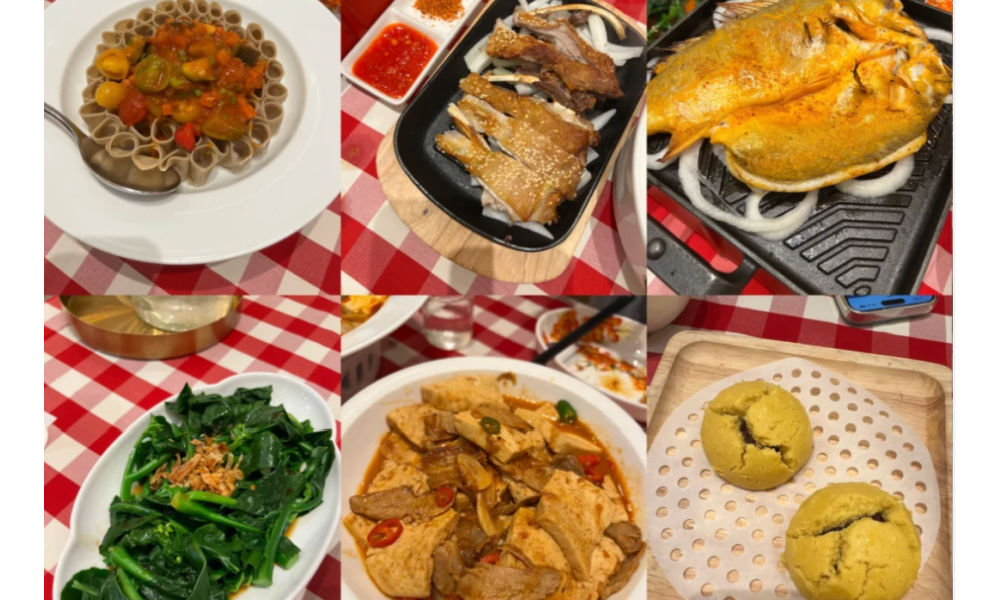
Example of Xibei dishes (not by Luo, but by a Xiaohongshu user).
On his Weibo account (@罗永浩的十字路口), he wrote about the disappointing experience:
“Haven’t eaten at Xibei in a while. Today after getting off the plane I had a meal with colleagues. Almost everything was yùzhìcài [pre-made food], and it was so expensive. Truly disgusting. I hope the state will legislate soon to mandate restaurants to disclose whether they use pre-made food.”

His post immediately set off a nationwide storm of discussions.
What Is Yùzhìcài?
A large party of the online discussion was about what exactly counts as yùzhìcài.
After all, the entire process of making tofu, for example, from soybean to final product, is a form of pre-processing that’s been part of Chinese cuisine for centuries.
According to China’s State Administration for Market Regulation, the term “yùzhìcài” applies to food that’s been prepped in advance using large-scale methods such as marinating, stir-frying, steaming, and then packaged for transport and sale to consumers or use in restaurant service. They’re not ready to eat as-is and must be heated or cooked before serving.
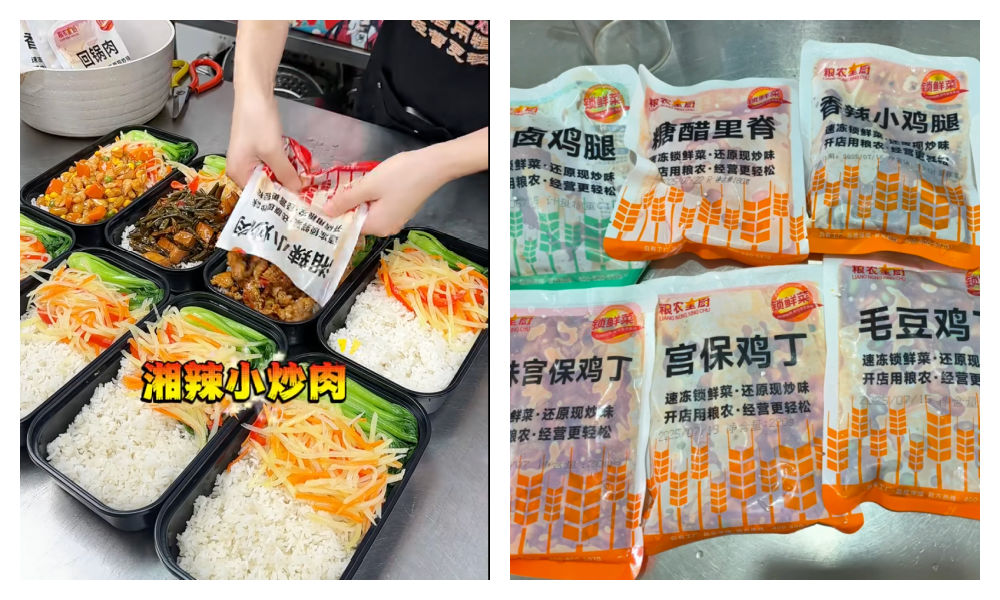
Examples of yuzhicai, pre-made food.
Still, many netizens wonder: does using a central kitchen qualify as yùzhìcài? Do frozen ingredients or factory-processed foods fall into the same category?
Many people aren’t necessarily opposed to pre-made dishes — some even associate them with better hygiene, especially when produced in regulated facilities, compared to meals prepared in smaller restaurant kitchens. At the same time, however, many object to pre-made food, assuming it is less healthy, or even unhealthy.
The “Pre-made War”
Luo’s criticism also wasn’t mainly about pre-made food in general, but about the high price and lack of disclosure about what’s being served.
Like one comment said: “I don’t mind pre-made food, but I do mind when the price doesn’t match.”
What made Luo’s comments particularly explosive was his choice of words — calling it “truly disgusting.”
When Chinese media contacted Xibei for comment, a spokesperson denied their food was pre-made and stressed that stir-fried dishes are cooked on-site, noodles are hand-kneaded, and beef marrow bones are freshly boiled each morning (#西贝回应被吐槽是预制菜#).
In response, Luo jokingly wrote: “…and their plastic bags are freshly cut, the microwave freshly opened, their prepared scripts freshly read…”
Xibei chairman Jia Guolong (贾国龙) clearly was not amused.
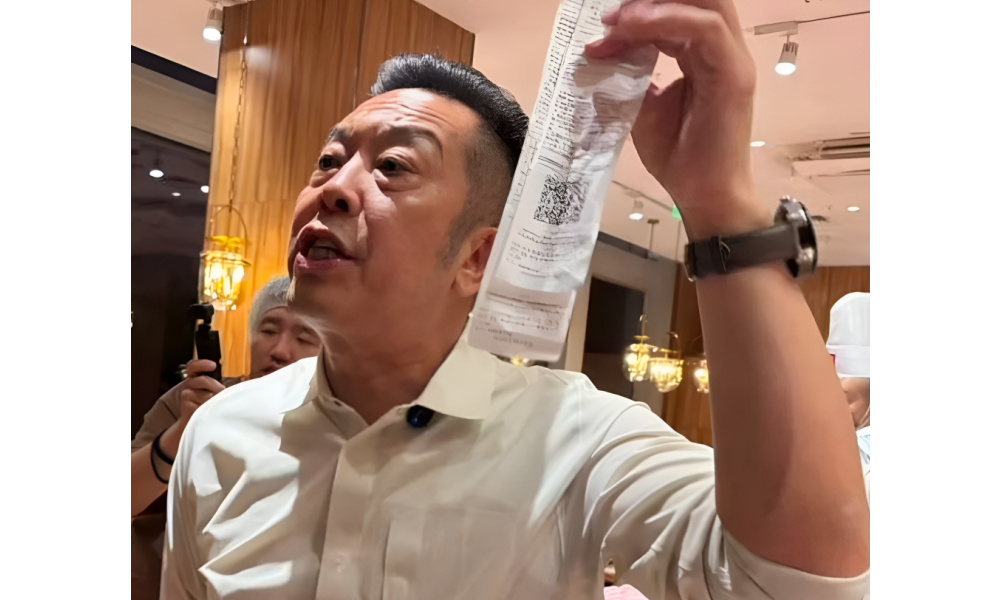
Xibei’s founder, Jia Guolong, was emotional about the controversy, which deeply affected the Xibei brand.
On September 11, he made a statement, saying:
“The restaurant industry doesn’t shy away from pre-processed ingredients, but we are not serving pre-made food. The state has a strict definition of pre-made dishes. According to national standards, not a single one of our dishes qualifies as yùzhìcài — 100% are not. Luo Yonghao claiming everything is pre-made is disgusting and hurtful.”
Jia not only announced plans to sue Luo Yonghao, he even promised to launch a special “Luo Yonghao Menu” (罗永浩菜单) in Xibei restaurants.
Again, Luo responded:
“Fine, show us. If this really isn’t pre-made food, that’s incredible. Being able to make freshly cooked dishes all taste like they were reheated — that’s got to be some high-level tech.”
But he didn’t leave it at that — the “pre-made war” was on. Luo even offered a RMB 100,000 ($14,000) reward for proof that Xibei uses pre-made food (an offer he later admitted was “impulsive”).
He also livestreamed, highlighting how Xibei’s children’s meals used frozen broccoli with a shelf life of up to two years, questioning whether such ingredients can be considered fresh, and criticizing the practice of selling “pre-made” vegetables at fresh food prices.

Luo’s livestream.
He further showed images of packaged sea bass used in Xibei kitchens, noting that the ingredients list included food additives sodium tripolyphosphate and sodium hexametaphosphate, and that the fish had a shelf life of up to 18 months.
Xibei Apologizes
Xibei, meanwhile, experienced what they called the largest external crisis since the founding of their company, with daily revenues dropping dramatically.
Trying to win back consumer trust, Xibei announced that all stores nationwide would open their kitchens to customer visits, actually launched their “Luo Yonghao Menu,” and made a promise: “If it doesn’t taste good, you don’t pay.”
But so far, Xibei hasn’t been able to fully win back the public’s favor. After all, it turns out that Xibei does use a central kitchen where food is prepared (meat is cut, vegetables washed), but because Chinese regulations do not count central kitchens making semi-finished or finished dishes for their own restaurants as yùzhìcài, many feel Jia Guolong is making use of a loophole.
Most people don’t care about the legal definition of yùzhìcài. What they care about is that the food is free of additives, fairly priced, tasty, and above all — fresh. Some argue that central kitchens and factories that make prefab food follow almost identical processes in essence.
In hopes of calming the PR crisis, Xibei also issued a public apology on September 15 in which they expressed regret for not meeting customer expectations and announced some changes to their company, including ensuring that more meals — including children’s meals — would be fully made in-store.
The Xibei Controversy: Consequences & Takeaways
The heated confrontation between Luo and Xibei has far-reaching consequences.
▪️ Legal Consequences
One of those consequences is a legal one. Although already underway, the public attention on prefab food might have quickened the process of regulation.
On September 13, the National Health Commission announced a draft law of the National Food Safety Standard for Pre-Made Dishes (预制菜食品安全国家标准). Once finalized, China will have a unified definition of “prefab food,” and for the first time, restaurants will be required to disclose whether and how they use it.
Luo Yonghao applauded the move, and while cheering for the upcoming regulations, he also said that the Xibei matter could be put to rest for now — after all, he suggested that legal clarity was one of his main goals.
▪️ Industry-Wide Impact
Seeing the dramatic impact this controversy has had on Xibei, other Chinese restaurant brands have begun to anticipate the yùzhìcài issue.

The Green Tea Restaurant quietly removed its signs saying all of its food is freshly made.
The Chinese dining chain Green Tea Restaurant (绿茶餐厅), for example, apparently wanted to avoid a PR crisis of its own and quietly removed its storefront sign that read: “No pre-made food, all dishes freshly made.” On their delivery packaging, they also blacked out the “no pre-made food” sentence, according to some media.

Livestreaming from the kitchen as a way to build consumer trust.
The controversy is also being used to the advantage of some restaurants, which have now begun live broadcasting their kitchens to show dishes being prepared in real time (后厨现炒, 后厨直播) — something that many Chinese restaurants, like Haidilao (海底捞), already did previously, and which is now being promoted as another way to build consumer trust.
▪️ A Win for Consumers
For consumers, the controversy has brought much more awareness about food preparation processes, with more people demanding transparency about the food they are served.
“Prefab Food Transparency” (预制菜透明化) has become a buzzword of the week, along with “Freshly Cooked, Freshly Stir-Fried” (现制现炒) as a way to win over diners.
Notably, there is one Chinese restaurant chain that is not being scrutinized this week.
Saizeriya (萨莉亚), a popular Japanese chain selling “Italian” food, is known as the “king of pre-made food.”
The reason Saizeriya has avoided public backlash despite being known for its yùzhìcài is because it is very affordable, and it has never pretended to be a “freshly made” restaurant — what you see is what you get.
That transparency, in the end, is what consumers are looking for — preferring consistency, honesty, and affordability over a more high-end restaurant like Xibei that presents itself as fresh while secretly using frozen ingredients.
In the end, that’s perhaps the lesson that can be learned from this whole ordeal for other restaurant chains: don’t pretend to be freshly made if you’re not, don’t be vague about your use of yùzhìcài, don’t mess with children’s food, and remember that in China’s dining culture and online environment, consumer trust is hard-won, and easily lost.
By Manya Koetse
Thanks to Miranda Barnes
(follow on X, LinkedIn, or Instagram)
Spotted a mistake or want to add something? Please let us know in comments below or email us. First-time commenters, please be patient – we will have to manually approve your comment before it appears.
©2025 Whatsonweibo. All rights reserved. Do not reproduce our content without permission – you can contact us at info@whatsonweibo.com.
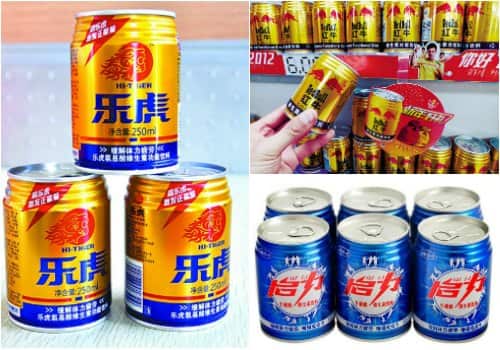

 Chapter Dive7 months ago
Chapter Dive7 months ago
 Chapter Dive10 months ago
Chapter Dive10 months ago
 China Insight7 months ago
China Insight7 months ago
 Chapter Dive10 months ago
Chapter Dive10 months ago
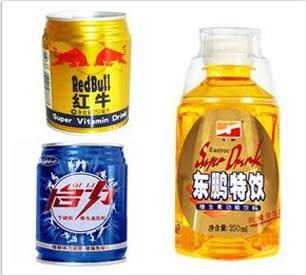
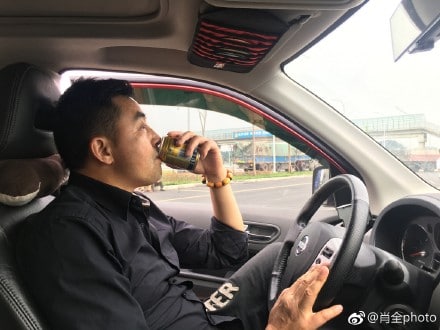





















www.beststatus.in.net
October 25, 2018 at 11:28 am
Definitely imagine that which you said. Your favorite reason seemed to be at
the internet the easiest thing to have in mind of. I say to you, I definitely get annoyed even as other folks think about worries that they plainly do not
recognize about. You managed to hit the nail upon the highest and outlined out the whole thing without having
side-effects , other folks can take a signal. Will likely be
back to get more. Thank you